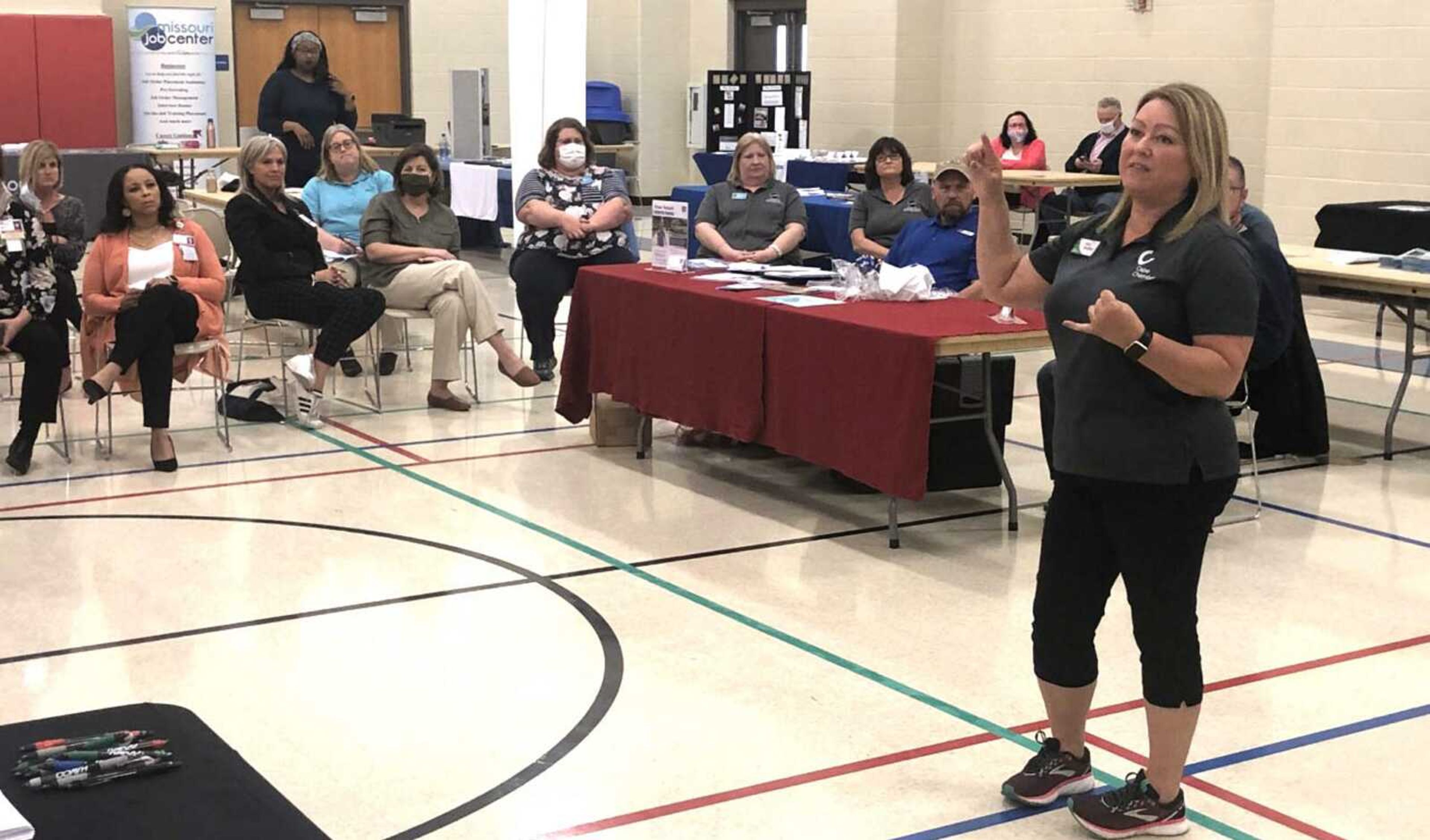Incentivizing work in 'an employee's market': No 'silver bullet' for tight labor market, local business leaders say
Dana Thomas has operated BOLD Marketing in Cape Girardeau since 2008 and says a "big shift" has occurred in her industry thanks to the myriad impacts of COVID-19 on the economy. "Before, we focused on sales-driven marketing and advertising and would do some headhunting for key, higher-level positions, but in the last 24 months, much more of my business has been transformed into employee recruitment and retention, culture building and employee morale," Thomas said...
Dana Thomas has operated BOLD Marketing in Cape Girardeau since 2008 and says a "big shift" has occurred in her industry thanks to the myriad impacts of COVID-19 on the economy.
"Before, we focused on sales-driven marketing and advertising and would do some headhunting for key, higher-level positions, but in the last 24 months, much more of my business has been transformed into employee recruitment and retention, culture building and employee morale," Thomas said.
"What recruiters, human resource teams and marketing firms are doing (now) is trying to find quality employees at a local level and extending the reach for those workers beyond what they'd considered before."
In the not-too-distant past, Thomas said, an employer may have required an employee to live no more than 30 to 45 miles from the workplace.
"At this point, companies are willing to look 60 to 75 miles out, even 90 miles away, and some will compensate the employee for the longer back-and-forth work commute," she said.
This Thursday, 17 companies and governmental institutions trying to fill open positions will be present for a job fair at Century Casino Cape Girardeau in downtown Cape Girardeau.
The problem
John Mehner, who will retire at year's end after 28 years as president and CEO of the Cape Girardeau Area Chamber of Commerce, said there is no simple answer to how the job market evolved to what the veteran business leader called an "extremely challenging" time.
"The additional revenue put into the system, the lack of child care, COVID-19 quarantines and, frankly, people who decided not to be in the workforce any longer," Mehner said, all add up to a problem he's seen "accelerating" in the past 18 months — since just after the arrival of the coronavirus on U.S. shores in March 2020.
"It's even harder now, according to the people we talk to here at the chamber, than it was right before the pandemic — and back then we were seeing our tightest labor market in 50 years."
Stay-at-home incentivization
Roughly half of U.S. states, including Missouri, ended the $300 weekly federal supplement for unemployed Americans more than three months ago.
The payment, added to regular state jobless aid, meant many of the jobless had received more in benefits than they made in their old employment, according to an analysis of state-by-state data culled by The Associated Press.
Gov. Mike Parson announced May 11 the cutoff of federal aid in Missouri.
"The solution to close this (labor shortage) is not the excessive spending of taxpayer dollars by the federal government, but rather getting people back to work and to a sense of normalcy for themselves and their families," Parson said.
Cutting off the federal payment, according to economic analyst Fiona Greig of JPMorgan Chase Institute, hasn't moved the needle much.
"Policymakers were pinning too many hopes on ending unemployment insurance as a labor market boost. The effects were clearly small," she said.
Brian Gerau, president of the Jackson Area Chamber of Commerce, said he thinks rising inflation may cause people to reenter the job market.
"As prices increase, whatever savings folks have accumulated will start to dwindle and people will have to get back to work," he said, adding a caution to his words.
"I don't know of anybody who has the silver bullet to figure this out."
New attitude
"If I could give one piece of advice to companies in structuring their recruitment efforts is to think of it as dating," said Thomas, whose said her firm is working with eight companies in Southeast Missouri to help them find employees to fill jobs. "Who is going to 'court' employees and make them feel valued and rewarded and treat them as if they matter and have opportunity?"
The companies who will do what she suggests, Thomas said, will "win out" in the recruitment competition, adding salary is not always the driving force in decisionmaking for the current generation of workers.
"It's a different time now," Gerau agreed. "It has definitely become an employee's market."
Connect with the Southeast Missourian Newsroom:
For corrections to this story or other insights for the editor, click here. To submit a letter to the editor, click here. To learn about the Southeast Missourian’s AI Policy, click here.








